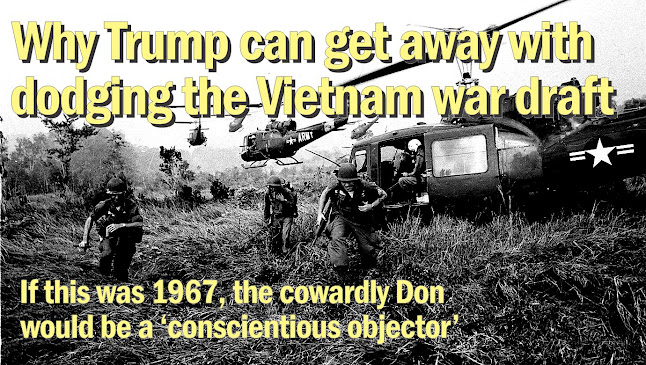o get the “big picture” in the failed US policy in Afghanistan, you must go back at least 40 years. After Russian tanks rolled into Kabul during its Soviet invasion in 1979, the American CIA quickly sprung into action cultivating the homegrown mujahideen resistance to push back against the postmodern Bolshevik expansion. They trained the mujahideens and equipped them with shoulder-fired Stinger ground-to-air missiles that blew countless Mig-21s into smithereens over Afghan airspace. American special forces infiltrators, whose existence and operations inside Afghanistan the US government still officially denies, schooled them in the arcane science of dismantling Russian army anti-personnel mines and unexploded Russian air force bombs to repurpose into Improvised Explosive Devices or (IED).
The irony is so thick, you can cut it with a knife. The "McGyver" skills that the Taliban used to kill and maim 2,400 American soldiers came from the Americans. They taught these intrepid turbaned guerillas how to snatch and read Russian army maps to predict troop movement and to choose the right spots to plant these lethal IED's. Afghanistan became America's war laboratory for running combat strategy experiments on how to cripple a big military apparatus using only liliputian units seamlessly integrated in rural Afghan villages and moving in total stealth and camouflage. Why not? America earned the combat knowhow with a collective bloody nose from the North Vietnamese. Afghanistan gave them the best opportunity to see what it feels like to be David against the Russian Goliath in a conventional war in which the US itself is not one of the contending armies. The Russian-Afghan war was one long learning moment. But it wasn't just America the mentor who was learning from these experiments. The mujahideen was paying as much close attention.
By all accounts the covert US intervention was a success. Leonid Breznev pulled the Soviet war machine out of Afghanistan. The retreat caused a hairline crack, at first, in the Soviet expansion block. That crack grew with subsequent military setbacks in Poland, followed by significant political shrinkages in Eastern Europe in the run-up to the fall of the Berlin Wall and the ultimate breakup of the Soviet Union.
What the present day
uninformed taxdollar-miser American doesn't know is that the dirt-cheap cost of
this covert intervention policy throughout
the 1980s Afghan war era is ALL the cost the US had to pay to regain world
political, economic and military dominance. So they can bellyache all they want
now about the trillion-dollar cost of their failed “nation-building” effort
finally winding up this month—these shameless cheapos—but in fact the US is
ending this engagement totally in the black ink. You have to do the math
across-the-board. Say nothing of the fact that US Army seabees mopping up the
closure of Bagram air base dismantled, unbolted and crated every last kitchen
sink from that former US military base--just like the Americans do everywhere
they depart around the world. The real payoff to the US is how it monetized the
global peace environment of the last four decades to fuel its post-Cold War
economy, enabling it to grow so strong they had to invent business outsourcing
to vent some of the excess productivity.
The US and the Taliban are
no strange bedfellows at all. As
recently as days ago only, the CIA director and some top echelon Taliban
leaders sat down in a meeting in Kabul outlining the mechanics of the final US
military drawdown. Of course they can talk to each other, they've been in
cahoots forty years.
After the collapse of the Soviet
empire, the Moscow-sponsored Afghan puppet regime in Kabul foundered too,
creating a real opportunity for the US to actually do some “nation-building.” All it had to do was
keep pressing with its influence on the Taliban resistance that it helped
cultivate. This largely peasant-based resistance was on the doorstep to
becoming the new government, the US just had to coax it to make that government inclusive. Unfortunately, from the
perspective of an imperial power looking long-term to preserve proxy control
over a regime it had set up, even the US saw an inclusive Afghan government as
something that can go many different ways, sentiment-wise in the future. America may be good at
exercising democracy at home but is allergic to it abroad. It prefers to prop
up authoritarian but loyal and subservient regimes as those in the Philippines,
Angola, Nicaragua, Saudi Arabia, Iraq, Turkey and other postmodern virtual US colonies.
With the US paying only lip service to inclusiveness, the mujahideen showed even less interest. To say that the Afghan
resistance did not subscribe to inclusiveness on their turn at the helm of government is simply professing the realpolitik
adage that oppressed classes know only two positions in life: somebody's knee
on their neck or their knee on somebody's neck. Thus the once nationalistic Afghan resistance
eventually rose to become the new Establishment, or the new oppressors whose brutal ways the US had little choice but
to tacitly countenance in another one of those American dogmas: they may have
turned out to be sonovabitches but they are our sonovabitches.
The US overlooked a
critical aspect of Afghan reemergence
from Russian subjugation: the element of Islamic radical fundamentalism that
was the real underpinning of the Afghan resistance to Communist Russia's systematic assault on religion. America
ignored it mostly out of ignorance per se. Americans simply
don't bother to understand the heathen, comfortably steeped in the dialectics
of materialism—which is all the essence of its capitalist culture. So when the
new Afghan order began to drift purposefully towards Shari'ah law radical
extremism, America was caught wondering what kind of Dr. Frankenstein's monster
it had created.
The mujahideens morphed into the
Taliban, and the Taliban became the Afghan government—at least up to 2001. So now
when the US State Department uses the
term Afghan resistance, I'm not really sure I know
who they're referring to.
In global politics, as in
all human affairs, there are no permanent friends or allies, only permanent
interests. The Afghan government that Breznev left behind in Kabul --a puppet regime
set up by Moscow comprising mostly of Afghan collaborators-- owed no debt to
the ragtag guerillas who had driven the Russians away. So, no, the term
“inclusive government" meant nothing to them, either. Instead of embracing
them as patriots and liberators, they treated the mujahideen as
US implants within the Afghan political culture.
Understand that most or
these mujahideens were Afghan peasants who didn’t exactly fit right
into the political system. Their awkward efforts to integrate themselves into
the government apparatus was ungainly to say the least. They don't know how to
run for office or, winning, how to run the office. Over a
long period of sporadic civil war, they were systematically marginalized they eventually
figured out they would fare better returning to the hills. From there they would
practice crude statecraft by controlling isolated enclaves where Shari'ah law would give them a level field they could dominate.
Discarded by the Americans
after they have served their limited purpose of rolling back Russian expansion,
the Taliban became free agents in the international geopolitical lobbying
space. What the US did not foresee is
that their over-training of the mujahideen created an
international school of resistance fighters that found client states all over
the most volatile region in the world--the middle east with its genetically-ingrained
credo to banish the western infidels from Arab soil, or failing to do that, to
bring the fight to the soils of the western homeland. This was how international
terrorism was born, and the US has to be pulling its own hair in total frustration
at realizing it had a seminal role in its gestation. Ⓒ 2021 Joel R. Dizon
NOTE FROM JOEL: Hi, folks! Recently, I started a YouTube channel which is called "Parables and Reason" It is kind of similar to this blog content-wise. You can check out my channel by clicking the link below:
Joel R. Dizon - PARABLES AND REASON





No comments:
Post a Comment